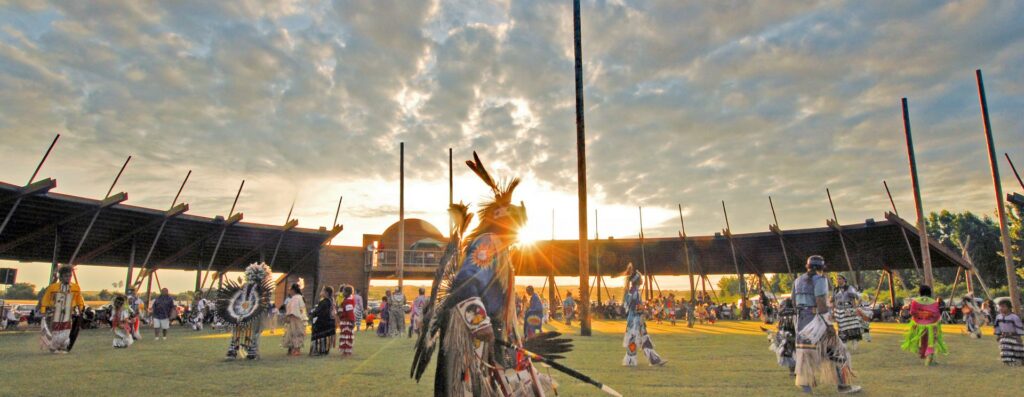Here in the United States, the month of November is celebrated as Native American Heritage Month.
Started as a campaign to establish a federally-recognized day of celebration for America’s tribal and Native communities, the observance has blossomed since its humble conception. In the present day, NAHM functions as an illuminative month-long celebration of the vast cultures, traditions, and ways of life, that make up America’s expansive Native communities.

Storytelling is an art central to the heart of many Native cultures, being used concomitantly to preserve tribal heritage, disseminate intergenerational knowledge, strengthen community and familial ties, and as a social pastime.
In the spirit of uplifting Native voices and values, we’re bringing you a fresh round up of Indigenous-authored titles. Ranging in topic and tone (from pensive poetry and impassioned prose to side-splittingly astute critiques of American modern culture) this collection of books is sure to inspire, inform, and—of course—entertain you.
What books are you reading this NAHM? Let us know at info@shareable.net! Below are summaries excerpted from each book’s website:
Why Indigenous Literatures Matter by Daniel Heath Justice
Part survey of the field of Indigenous literary studies, part cultural history, and part literary polemic, Why Indigenous Literatures Matter asserts the vital significance of literary expression to the political, creative, and intellectual efforts of Indigenous peoples today.
An American Sunrise: Poems by Joy Harjo
In this stunning collection, Joy Harjo (the first Native American Poet Laureate of the United States) finds blessings in the abundance of her homeland and confronts the site where the Mvskoke people, including her own ancestors, were forcibly displaced. From her memory of her mother’s death, to her beginnings in the Native rights movement, to the fresh road with her beloved, Harjo’s personal life intertwines with tribal histories to create a space for renewed beginnings.
We Had a Little Real Estate Problem: The Unheralded Story of Native Americans & Comedy by Kliph Nester-off
It was one of the most reliable jokes in Charlie Hill’s stand-up routine: “My people are from Wisconsin. We used to be from New York. We had a little real estate problem.”
In We Had a Little Real Estate Problem, acclaimed comedy historian Kliph Nesteroff focuses on one of comedy’s most significant and little-known stories: how, despite having been denied representation in the entertainment industry, Native Americans have influenced and advanced the art form.
Braiding Sweetgrass by Robin Wall Kimmerer
Drawing on her life as an indigenous scientist, and as a woman, Kimmerer shows how other living beings―asters and goldenrod, strawberries and squash, salamanders, algae, and sweetgrass―offer us gifts and lessons, even if we’ve forgotten how to hear their voices.
In reflections that range from the creation of Turtle Island to the forces that threaten its flourishing today, she circles toward a central argument: that the awakening of ecological consciousness requires the acknowledgment and celebration of our reciprocal relationship with the rest of the living world. For only when we can hear the languages of other beings will we be capable of understanding the generosity of the earth, and learn to give our own gifts in return.
There There by Tommy Orange
Tommy Orange’s wondrous and shattering novel follows twelve characters from Native communities: all traveling to the Big Oakland Powwow, all connected to one another in ways they may not yet realize.
Together, this chorus of voices tells of the plight of the urban Native American–grappling with a complex and painful history, with an inheritance of beauty and spirituality, with communion and sacrifice and heroism. Hailed as an instant classic, There There is at once poignant and unflinching, utterly contemporary and truly unforgettable.
The Inconvenient Indian: A Curious Account of Native People in North America by Thomas King
Neither a traditional nor all-encompassing history of First Nations people in North America, The Inconvenient Indian is a personal meditation on what it means to be “Indian.” Thomas King explores the relationship between Natives and non-Natives since the fifteenth century and examines the way that popular culture has shaped our notion of Indigenous identity, while also reflecting on his own complicated relationship with activism.
WHEREAS: Poems by Layli Long Soldier
The Night Watchman by Louise Erdrich
Based on the extraordinary life of National Book Award-winning author Louise Erdrich’s grandfather who worked as a night watchman and carried the fight against Native dispossession from rural North Dakota all the way to Washington, D.C., this powerful novel explores themes of love and death with lightness and gravity and unfolds with the elegant prose, sly humor, and depth of feeling of a master craftsman.
Everything You Wanted to Know about Indians But Were Afraid to Ask by Anton Treuer
What have you always wanted to know about Indians? Do you think you should already know the answers—or suspect that your questions may be offensive? In matter-of-fact responses to over 120 questions, both thoughtful and outrageous, modern and historical, Ojibwe scholar and cultural preservationist Anton Treuer gives a frank, funny, and sometimes personal tour of what’s up with Indians, anyway.
Asserting that White/Indian relations are often characterized by guilt and anger, Everything You Wanted to Know about Indians but Were Afraid to Ask cuts through the emotion and builds a foundation for true understanding and positive action.
The Tao of Raven by Ernestine Hayes
In her first book, Blonde Indian, Ernestine Hayes powerfully recounted the story of returning to Juneau and to her Tlingit home after many years of wandering. The Tao of Raven takes up the next and, in some ways, less explored question: once the exile returns, then what?
Using the story of Raven and the Box of Daylight (and relating it to Sun Tzu’s equally timeless Art of War) to deepen her narration and reflection, Hayes expresses an ongoing frustration and anger at the obstacles and prejudices still facing Alaska Natives in their own land, but also recounts her own story of. She lyrically weaves together strands of memoir, contemplation, and fiction to articulate an Indigenous worldview in which all things are connected, in which intergenerational trauma creates many hardships but transformation is still possible.









